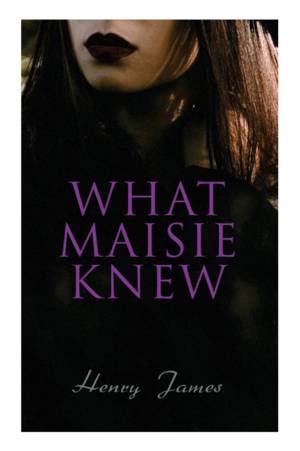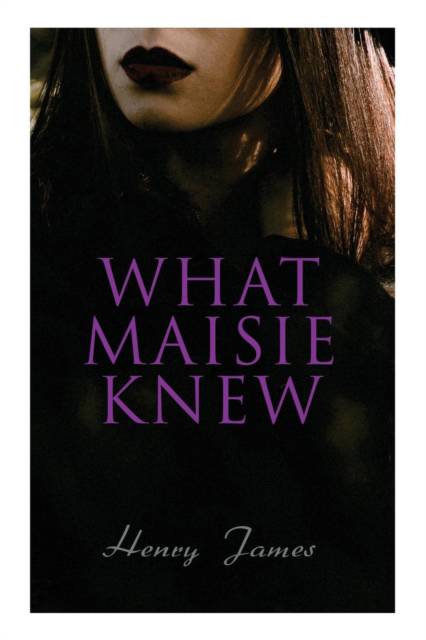
Je cadeautjes zeker op tijd in huis hebben voor de feestdagen? Kom langs in onze winkels en vind het perfecte geschenk!
- Afhalen na 1 uur in een winkel met voorraad
- Gratis thuislevering in België vanaf € 30
- Ruim aanbod met 7 miljoen producten
Je cadeautjes zeker op tijd in huis hebben voor de feestdagen? Kom langs in onze winkels en vind het perfecte geschenk!
- Afhalen na 1 uur in een winkel met voorraad
- Gratis thuislevering in België vanaf € 30
- Ruim aanbod met 7 miljoen producten
Zoeken
Omschrijving
In "What Maisie Knew," Henry James meticulously explores the consciousness of a young girl, who becomes a pawn in the tumultuous emotional landscape created by her feuding parents. The novel, characterized by its intricate narrative style and psychologism, delves into themes of perception, innocence, and the complexities of adult relationships. Set against the backdrop of late Victorian society, James's prose deftly interweaves interior monologues and vivid observations, capturing Maisie's bewilderment at the adult world's moral ambiguity. This innovative approach situates the work within the context of psychological realism, paving the way for modernist literature. Henry James, a pivotal figure in the literary canon, was known for his acute psychological insight and exploration of social issues. Born to a transatlantic family, his experiences in both America and Europe informed his nuanced understanding of cultural contexts and human behaviors. "What Maisie Knew" reflects not only his deep empathy for childhood innocence but also his critique of the moral failures of adults, indicative of his broader literary ambitions to elucidate human complexities. For those interested in a profound examination of adolescence, perception, and the often cruel indifference of adult society, "What Maisie Knew" is an indispensable read. With its rich characterizations and psychological depth, this novel invites readers to question the reliability of knowledge and the burden of understanding, making it a timeless classic in the exploration of human experience.
Specificaties
Betrokkenen
- Auteur(s):
- Uitgeverij:
Inhoud
- Aantal bladzijden:
- 152
- Taal:
- Engels
Eigenschappen
- Productcode (EAN):
- 9788027330775
- Verschijningsdatum:
- 14/12/2018
- Uitvoering:
- Paperback
- Formaat:
- Trade paperback (VS)
- Afmetingen:
- 152 mm x 229 mm
- Gewicht:
- 213 g

Alleen bij Standaard Boekhandel
+ 36 punten op je klantenkaart van Standaard Boekhandel
Beoordelingen
We publiceren alleen reviews die voldoen aan de voorwaarden voor reviews. Bekijk onze voorwaarden voor reviews.









